Today is Earth Day, April 22nd. I am reminded of how our relationship with Mother Earth may echo our first relationship with mother in the womb and the time of birth.
Today, in 2023, we are as a species in dire need for more conscious connection with our planet. I ask myself, as perhaps you also ask, how did we become so disrespectful, negligent, and abusive? As a pre- and perinatal psychologist, I find myself coming back to how our modern western attitudes towards Earth resonate with modern attitudes towards women, birth, and babies.
You may question how I can include babies in this list. Surely, we all adore a newborn baby. Don’t we all smile when we meet little ones who represent for us a purity and innocence we may long for and vaguely remember?
Yes, we may find ourselves delighted in encountering babies, but how sensitive are we to their needs? How compassionate are we? Can we understand and respond to their emotions and their always very clear communications?
Communicating with Babies
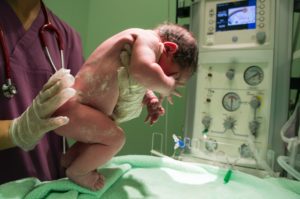 Unfortunately, for many of us, baby communications don’t seem so clear. How many doctors do you know who talk to and listen to the baby who is in the process of being born? These babies are intelligent people ready and wanting to communicate and cooperate. If a baby is in breech position and someone explains to them how much easier the birth can be if they turn and how to do that, usually babies will turn to a position facilitating their exit from the womb. Parents who listen to their baby in the womb receive not only kicks meeting their hand on mother’s belly, but also often pictures or sensations giving them information about the baby’s preferences or requests. How many parents do you know who are able to listen to and receive messages in this way?
Unfortunately, for many of us, baby communications don’t seem so clear. How many doctors do you know who talk to and listen to the baby who is in the process of being born? These babies are intelligent people ready and wanting to communicate and cooperate. If a baby is in breech position and someone explains to them how much easier the birth can be if they turn and how to do that, usually babies will turn to a position facilitating their exit from the womb. Parents who listen to their baby in the womb receive not only kicks meeting their hand on mother’s belly, but also often pictures or sensations giving them information about the baby’s preferences or requests. How many parents do you know who are able to listen to and receive messages in this way?
This is not to criticize those parents, or doctors, or others, who don’t listen. We are not supported in our modern world to attend to little ones or their needs in this way.
An extreme but far too common example of this not listening is the practice until the 1980s of operating on little babies without anesthesia.1 Babies were given drugs to paralyze them so they could not physically react to the painful procedures, but they were assumed to be incapable of remembering the experience and therefore received no anesthesia.
What a strange assumption! Of course, babies remember their experience. They cannot speak about it. They don’t remember it in words. The part of their brain that enables speech has yet to develop. Their bodies remember. This is called implicit memory and manifests as body motion or postures, emotions, or behavior.
Memory Beyond Words
We all have implicit memories of events that occurred before we could speak, as well as of traumatic experiences that took our 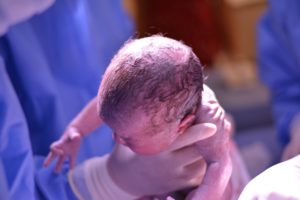 conscious brains offline.
conscious brains offline.
These operations without anesthesia were both preverbal and inevitably traumatic. Those who survived them often live with unexplained fears and body issues. Their nervous system holds the trauma and tends to be easily triggered into defensive action.
How does this relate to how we treat the earth? Babies are learning rapidly about their world and adapting to its rules and regulations. Even those of us who were not subjected to inhumanely painful operations without anesthesia may have experienced degrees of insensitivity from those around us in our earliest moments. We may have been exposed to highly stressful environments via our mother’s experience when we were directly connected to her in the womb or soon after birth. This teaches the little one that the world around them is dangerous. They learn to live in readiness to protect themselves.
We know from the groundbreaking work of Stephen Porges2 that we cannot perceive safety when we are in a defensive nervous system state. Cell biologist Bruce Lipton3 has also noted that cells can be in either a state of growth or protection, but not both simultaneously. We are made up of cells.
From a defensive state we perceive danger. We might fail to take in the beauty of our planet as we are focused on protecting ourselves from what we fear might come next. We need to make as much money as possible, kill as many of the enemy as we can, beat our opponents at any cost, ruthlessly harvest the earth for all her natural resources to have a sense of abundance. We need to get the baby born as quickly as possible to avoid all the possible dangers we have imagined…
Shifting out of Unconsciousness
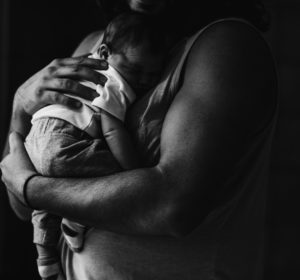 These behaviors are reminiscent of implicit memory, which can be expressed as procedural behaviors, actions we take automatically without thinking about them.
These behaviors are reminiscent of implicit memory, which can be expressed as procedural behaviors, actions we take automatically without thinking about them.
For too long we as a species have not stopped to think about how our industries, war, and birth practices might affect our planet and our future.
In the field of pre- and perinatal psychology, we have seen that people tend to live the way they were born. Our experiences in the womb and the time of birth establish templates for how we meet life conditions, including stress and relationships. If we were treated with lack of sensitivity to our needs and intelligence, we often learn to treat others in this way. This includes not only other people. Our Mother Earth also deserves and has been lacking respect.
It is time for this pattern to be interrupted. Fortunately, awareness of pre- and perinatal psychology is increasing. More babies are being gestated and born with the gentleness they need, and more people are engaging in the healing work that enables them to meet babies, life, and earth more consciously.
I hope this can enhance our awareness of our remarkable planet and her natural intelligence. I hope it is not too late to begin treating her differently.
References
- Chamberlain, D. B. (1991). Babies don’t feel pain: A century of denial in medicine. Presentation at Second International Symposium of Circumcision, San Francisco, CA, May 2, 1991. Retrieved December 27, 2017 from http://www.nocirc.org/symposia/second/chamberlain.html.
- Porges, S. (2011). The Polyvagal Theory: Neurophysiological Foundations of Emotions, Attachment, Communication, and Self-Regulation (Norton Series on Interpersonal Neurobiology). W. W. Norton.
- Lipton, B. (1998, Fall). Nature, nurture and the power of love. Journal of Prenatal and Perinatal Psychology and Health, Fall,13 (1): 3-10.
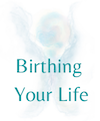
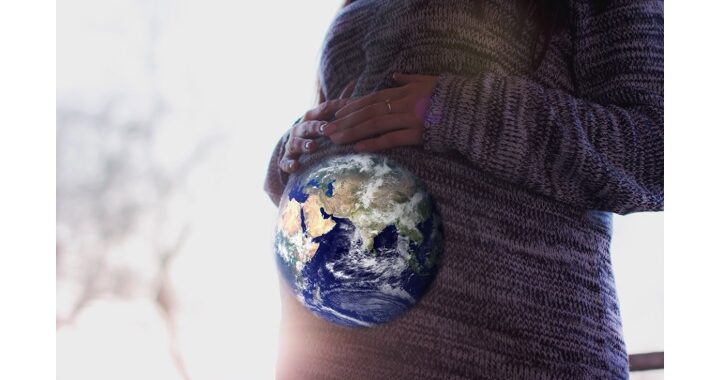

Love that. I was lucky myself and all siblings born between 1950 and 1964 (me) were born in the appartment were my parents lived by the local midwive and sucked at our moms milk.
I think of some paing and traumas that I can identify with – now as I read your peace I think to myself it could have been much worse.
Thank you dear and I might be joining you to learn something soon.
Best regards,
Osama Afif
Jeddah, Saudi Arabia.
Thank you Osama for your comment. I’m glad you could be born at home and breastfeed. It sounds like this piece enhanced your awareness of both how lucky you were and of what traumas can occur. I look forward to meeting you when it’s time. Best, Cherionna